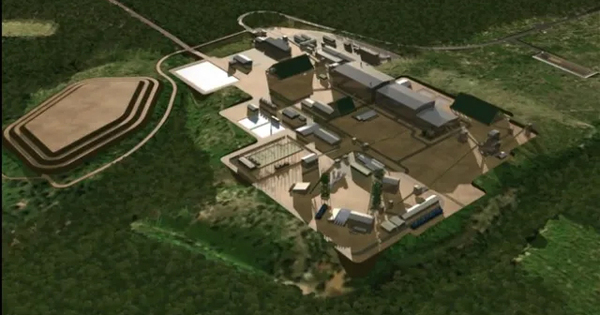Brazil Potash, a subsidiary of Toronto-based Brazil Potash Corp, is seeking US$2.8 billion in funding to develop its Autazes potassium project in the state of Amazonas, according to company executives.
The ambitious fertilizer project, located approximately 120 kilometers southeast of Manaus, aims to reduce Brazil’s heavy dependence on imported potash—a critical nutrient for the country’s vast agricultural sector. Currently, Brazil imports more than 95% of its potash needs, creatin
...
Brazil Potash, a subsidiary of Toronto-based Brazil Potash Corp, is seeking US$2.8 billion in funding to develop its Autazes potassium project in the state of Amazonas, according to company executives.
The ambitious fertilizer project, located approximately 120 kilometers southeast of Manaus, aims to reduce Brazil’s heavy dependence on imported potash—a critical nutrient for the country’s vast agricultural sector. Currently, Brazil imports more than 95% of its potash needs, creating a strategic vulnerability for the world’s largest exporter of soybeans and a major producer of corn and sugar.
Speaking to reporters this week, Brazil Potash CEO Matt Simpson outlined the company’s financing strategy, which includes pursuing a combination of debt and equity investments. The company has already secured preliminary commitments from several financial institutions and is in advanced discussions with potential strategic partners.
“This project represents a unique opportunity to address Brazil’s fertilizer security concerns while creating substantial economic benefits for the Amazonas region,” Simpson said. “We’re seeing strong interest from both Brazilian and international investors who recognize the strategic importance of developing domestic potash production.”
The Autazes project boasts impressive reserves, estimated at over 500 million tonnes of potassium chloride. Once operational, the mine is expected to produce approximately 2.2 million tonnes annually, potentially satisfying about 20% of Brazil’s current potash demand. This would significantly reduce the country’s reliance on imports from Canada, Russia, and Belarus, which have dominated the global potash market.
Environmental considerations have been central to the project’s development plans. Brazil Potash has completed extensive environmental impact studies and has committed to implementing state-of-the-art mining technologies to minimize ecological disruption in the sensitive Amazon region. The company has worked closely with local communities and environmental authorities to address concerns regarding the project’s footprint.
“We’ve invested heavily in sustainable mining practices and environmental protection measures,” explained Technical Director Carlos Henrique Gonzalez. “Our underground mining approach will have minimal surface impact compared to traditional open-pit operations, and we’ve designed comprehensive water management systems to ensure zero discharge into the Amazon River basin.”
The economic impact of the Autazes project extends beyond reducing import dependence. Brazil Potash estimates the development will create approximately 2,000 direct jobs during construction and 1,000 permanent positions once operational. The company has established training programs in partnership with local educational institutions to prepare residents for employment opportunities.
The timing of the project coincides with growing concerns about global fertilizer supply chains. Recent geopolitical tensions, particularly those affecting major potash producers like Russia and Belarus, have highlighted the risks of Brazil’s heavy import reliance. Agricultural analysts have long warned that disruptions in potash supplies could severely impact Brazil’s farming productivity and global food security.
“Brazil’s agricultural sector is too important, both domestically and globally, to remain so dependent on imported fertilizers,” noted Dr. Ana Maria Ferreira, an agricultural economist at the University of São Paulo. “The Autazes project represents a significant step toward greater resilience in Brazil’s agricultural supply chain.”
The Brazilian government has signaled support for the development of domestic fertilizer production through its National Fertilizer Plan, which aims to reduce import dependence across various agricultural inputs. Federal officials view the Autazes project as aligning with these strategic objectives.
Industry observers note that Brazil Potash’s funding efforts come at a challenging time for mining investments globally. Rising interest rates and increased scrutiny of extractive projects, particularly in environmentally sensitive regions, have complicated financing for major developments. However, the strategic nature of fertilizer production and strong governmental support may offset these challenges.
If successful in securing funding, Brazil Potash anticipates beginning construction in late 2024, with initial production targeted for 2028. The company has already completed significant preparatory work, including detailed engineering designs and procurement planning.
The Autazes project represents one of the largest mining investments proposed for the Amazon region in recent years and could mark a turning point in Brazil’s agricultural self-sufficiency efforts. As global fertilizer markets continue to experience volatility, domestic production capabilities have taken on increased importance for major agricultural nations.
Brazil Potash has indicated that it will provide further updates on financing progress and project timelines in the coming months as discussions with potential investors advance.


